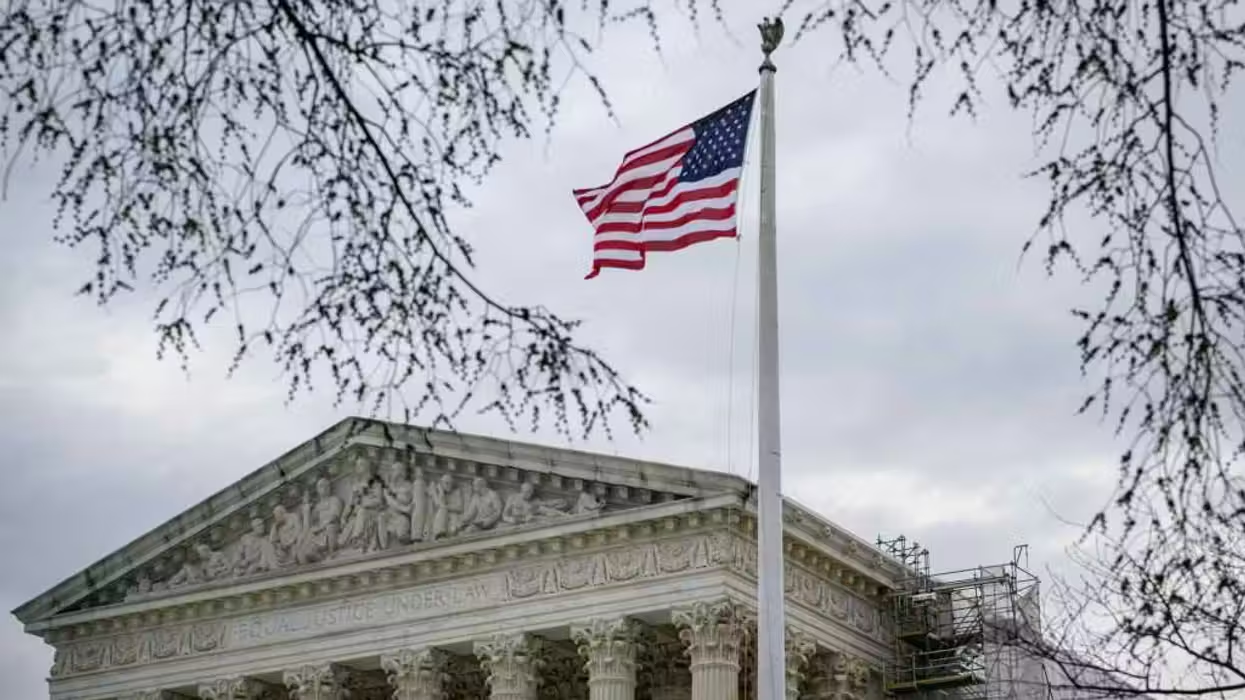© 2025 Blaze Media LLC. All rights reserved.
"I think it's a matter of national importance."
 In early January, we brought you the story of Ramona Fricosu, the Colorado woman who was fighting prosecutors who were trying to get a judge to force her to decrypt her hard drive. Prosecutors who wanted to find and retrieve evidence against her. And now the judge's decision -- which some have have called "precedent-setting" -- is in: he's forcing Fricosu to decrypt.
In early January, we brought you the story of Ramona Fricosu, the Colorado woman who was fighting prosecutors who were trying to get a judge to force her to decrypt her hard drive. Prosecutors who wanted to find and retrieve evidence against her. And now the judge's decision -- which some have have called "precedent-setting" -- is in: he's forcing Fricosu to decrypt.
“I conclude that the Fifth Amendment is not implicated by requiring production of the unencrypted contents of the Toshiba Satellite M305 laptop computer,” Colorado U.S. District Judge Robert Blackburn said Monday in his ruling.
Fricosu had been arguing that being forced to do so infringed on her right against self-incrimination in a case revolving around mortgage fraud.
But what makes this case concerning to civil rights monitors is that prosecutors are not sure if there is, for sure, evidence on the computer -- they simply suspect it. "The judge in the Colorado case said there was plenty of evidence — a jailhouse recording of the defendant — that the laptop might contain information the authorities were seeking," Wired reports.
ZDNet has more on the recording:
The laptop in question, Blackburn said, more likely than not belonged to and was used by Fricosu. The one piece of damning evidence was a jailhouse conversation Fricosu had with her ex-husband, Scott Whatcott, who also was arrested in the case. Blackburn’s ruling included a transcript of the conversation, which he said proved Fricosu owned and had access to the computer.Blackburn also noted that the defendant had been granted immunity and that federal prosecutors would not use her act of producing the laptop’s contents in the case against her.
Fricosu has until Feb. 21 to produce an unencrypted hard drive.
Phil Dubois, Fricosu's attorney, will seek a stay in the ruling, according to Engadget, and hopefully appeal the decision.
"I think it's a matter of national importance," he explained. "It should not be treated as though it's just another day in Fourth Amendment litigation."
Want to leave a tip?
We answer to you. Help keep our content free of advertisers and big tech censorship by leaving a tip today.
Want to join the conversation?
Already a subscriber?
Jonathon M. Seidl is a former managing editor of Blaze News and a best-selling author and speaker. His next book, “Confessions of a Christian Alcoholic,” will be released on October 7, 2025.
Jonathon M. Seidl
Jonathon M. Seidl is a former managing editor of Blaze News and a best-selling author and speaker. His next book, “Confessions of a Christian Alcoholic,” will be released on October 7, 2025.
more stories
Sign up for the Blaze newsletter
By signing up, you agree to our Privacy Policy and Terms of Use, and agree to receive content that may sometimes include advertisements. You may opt out at any time.
Related Content
© 2025 Blaze Media LLC. All rights reserved.
Get the stories that matter most delivered directly to your inbox.
By signing up, you agree to our Privacy Policy and Terms of Use, and agree to receive content that may sometimes include advertisements. You may opt out at any time.






